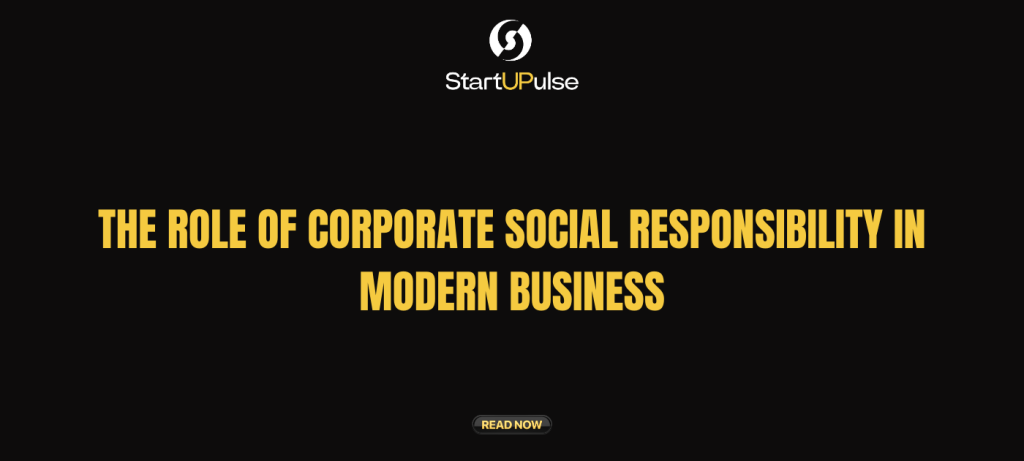
In today’s world, businesses are not just about making money. They also care about the people, the planet, and how they can make the world a better place. This idea is called Corporate Social Responsibility, or CSR for short. Let’s explore what CSR means and why it is important for modern businesses.
What is Corporate Social Responsibility (CSR)?
Corporate Social Responsibility (CSR) is when a company takes steps to make a positive impact on society and the environment. Instead of only focusing on profits, these companies also think about how their actions affect people and the planet.
Think of CSR like this: Imagine if your favorite toy store decided to help out at a local animal shelter, recycle more, or support schools. They are using their resources to do good in the community. That’s CSR!
Why Do Companies Practice CSR?
1. Building a Good Reputation
When companies show they care about more than just making money, they build a good reputation. People like to support businesses that help others and protect the environment. For example, a company that uses eco-friendly materials might attract more customers who care about nature.
2. Attracting and Keeping Talented Employees
Workers want to feel proud of where they work. A company with strong CSR practices can attract talented people who want to be part of something good. Plus, employees are often happier and stay longer when they feel their company is making a positive impact.
3. Making a Positive Impact
Businesses can use their resources, like money and time, to solve important problems. For instance, a company might donate to charity, support clean energy projects, or help communities recover from natural disasters. This can make a real difference in people’s lives and help the planet.
Examples of CSR in Action
1. Environmental Protection
Many companies are working to reduce their environmental footprint. They might use less plastic, recycle more, or switch to renewable energy like wind or solar power. For example, a clothing brand might use recycled materials to make their clothes or reduce water usage in their production.
2. Supporting Communities
Businesses often give back to the communities where they operate. This could mean sponsoring local events, funding educational programs, or helping with disaster relief efforts. A restaurant might provide free meals to those in need or donate to local schools.
3. Ethical Labor Practices
Some companies ensure that their workers are treated fairly and work in safe conditions. This means paying fair wages, avoiding child labor, and making sure workplaces are safe. For instance, a company might inspect factories to make sure workers are not being mistreated.
How CSR Helps Businesses
1. Customer Loyalty
When companies do good things, customers notice and often become loyal fans. People like to support businesses that make a positive impact. For example, if you know a company donates a portion of its profits to environmental causes, you might choose to buy from them instead of a competitor.
2. Risk Management
Practicing CSR helps companies avoid problems that could damage their reputation. For example, a company that ignores environmental regulations might face fines or bad press. By following ethical practices, companies can prevent such issues.
3. Long-Term Success
Companies that practice CSR often enjoy long-term success. When they treat people and the planet well, they build trust and a positive image. This can lead to more customers, better employees, and a stronger business overall.
Challenges of CSR
While CSR is important, it can also be challenging. Here are a few difficulties companies might face:
1. Cost
Implementing CSR practices can be expensive. For example, using eco-friendly materials or paying fair wages might cost more. However, many companies find that the long-term benefits outweigh these initial costs.
2. Balancing Profit and Responsibility
Companies need to balance making a profit with their social and environmental responsibilities. It can be tricky to ensure that CSR efforts don’t hurt the company’s bottom line.
3. Measuring Impact
It can be hard to measure how much good a company is actually doing. Businesses need to find ways to track their CSR efforts and show that they are making a real difference.
The Future of CSR
As we move forward, CSR is likely to become even more important. People are becoming more aware of social and environmental issues, and they expect businesses to do their part. Companies will need to keep finding new ways to be responsible and make a positive impact.
1. More Focus on Sustainability
Sustainability, or taking care of the environment, will continue to be a major focus. Companies will need to find new ways to reduce waste, use renewable resources, and protect natural habitats.
2. Greater Transparency
People want to know what companies are doing to be responsible. Businesses will need to be transparent about their CSR efforts and share their progress openly.
3. Innovative Solutions
The future will likely bring new challenges and opportunities for CSR. Companies might develop innovative solutions to address social and environmental issues, like new technologies or creative ways to support communities.
Conclusion
Corporate Social Responsibility is about more than just being nice. It’s about companies taking action to make the world a better place while still running a successful business. By caring for people and the planet, businesses can build a strong reputation, attract good employees, and make a positive impact. As CSR continues to grow, we can expect more businesses to find new and creative ways to contribute to a better world.



















